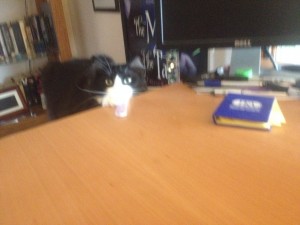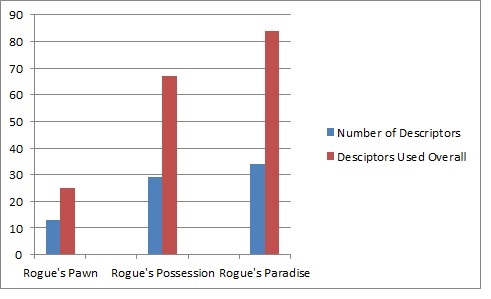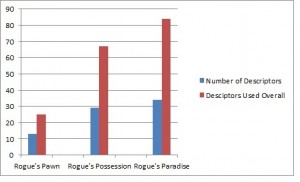
I’m getting serious about regular yoga practice lately. My lovely stepdaughter and son-in-law gave me a gift certificate for Christmas to 6pm.com, where I was able to get all kinds of great yoga clothes for not much money! This is the pic I took for them to show my loot. I’m excited because I’ve found a yoga studio I really like with a wide variety of classes at times that work for me. I went twice right after Christmas, then got this obnoxious flu. I’m finally feeling back up to full strength so I’m revved to attend regularly and build a steady practice. I’ve been doing variants of yoga along with other martial training for more than twenty years, but never really devoted myself to yoga. Now’s the time!
Yoga is one of those practices that require long-term commitment. The results come gradually, with diligence and consistency. I’m looking at it as something to do to maintain my body as it ages. Thinking long term like this requires a different perspective. I’m not trying to lose fifteen pounds in the next six months so much (though I am), as wanting to regain flexibility and retain elasticity and strength as an aging body moves away from those things. It’s much the same as I’ve approached my writing career, which I’ve always viewed as a long game.
That includes marketing.
Marketing has been on my mind lately. I did a post about this at the SFF Seven a bit ago. And last week I was on a panel about productivity as a writer for LERA, my local RWA chapter, and one question people asked was where in my schedule I fit in marketing. It’s not that I don’t accept marketing as a reality of being a career author. I worry that it gets too much attention from authors, especially in the short term.
When I started out with my first books, I received the advice that the best, most effective method for marketing my book was to write the next book. A lot of people get this advice. It’s really good advice. I’d only amend to say, “concentrate on writing the next book and try to make it even better than the previous one.”
See, the problem I have with a lot of today’s focus on marketing is that authors seems to get very focused on promoting THAT book or THAT series. They work hard to get a better Amazon ranking, to get more reviews, to get a bestseller status that they can put under their email signature or website banner. All of these things make nicely tangible milestones. It’s easy to know if you did it or not, so they’re seductive for that reason. It’s much more difficult to quantify the longer-term goals of gaining a devoted readership or improving your reputation in the genre.
Still, those longer-term goals are the ones that matter. For example, having a book hit the USA Today (USAT) Bestseller list should be an indication that enough readers anticipated and loved the book that they bought the book during a certain amount of time. It’s a terrific measure of a dedicated fan base. But a lot of short-term marketing efforts these days go into getting on that list – joining in box sets with other authors and pouring on promotional money in order to get that badge of honor. The argument is that an author being able to call themselves a USAT Bestselling Author will sell more books.
But will it?
Maybe?
Still, it’s no longer a measure of that long-term goal of having a dedicated reader base. It’s a reflection of a short-term promotional effort. The reality is, unless an author is writing books that readers love, it doesn’t matter what’s on their website banner or under their email signature. Word of mouth and reader recommendation is still the primary way people find new books. It’s how I find new books.
This is why writing the next book – and trying to improve on the previous book – is the key to the long game. I get that it can feel critical to launch a debut book well, or to get that series off the ground, but winning readers who will put you on their autobuy list for the next twenty years is what will allow you to be a career author, to make a consistent income from both your back- and front-list. Making money or a USAT Bestseller badge off of one book – or even one series – won’t.
Just like my losing 15 pounds by summer won’t ensure my long-term health. A lot of planning and gradual improvement will go into how my body will perform thirty years from now – and the same is true of my writing career.
Both are about the long game.

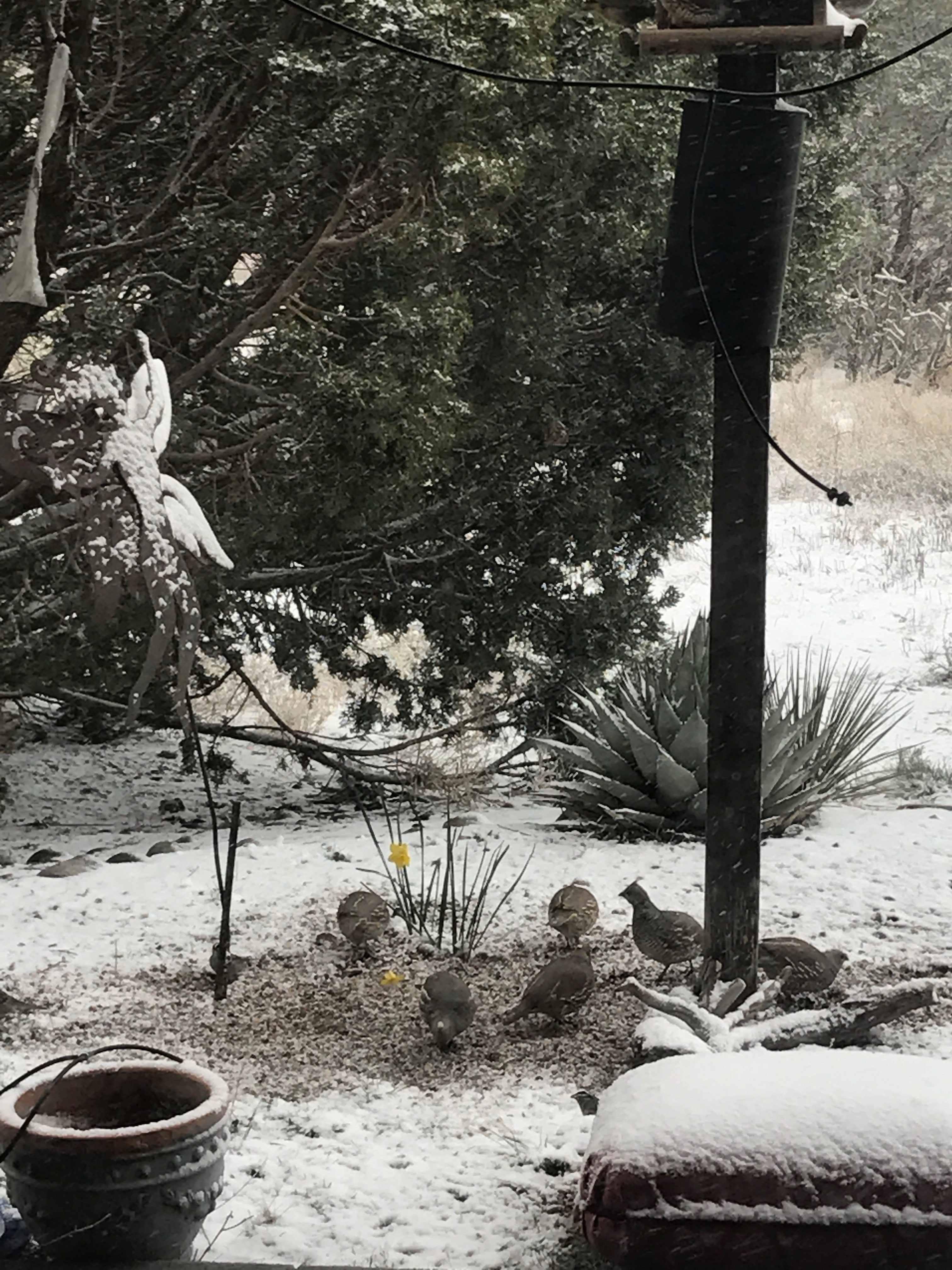
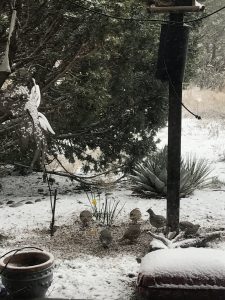 We’re having a lovely April snowstorm today, which means the quail are here in force, and looking for food. They kick up the snow and gravel with their claws, to get at the dropped seed below the feeder. I took this photo from my office window. They scratch for seed while I scratch for words. It feels very companionable.
We’re having a lovely April snowstorm today, which means the quail are here in force, and looking for food. They kick up the snow and gravel with their claws, to get at the dropped seed below the feeder. I took this photo from my office window. They scratch for seed while I scratch for words. It feels very companionable.